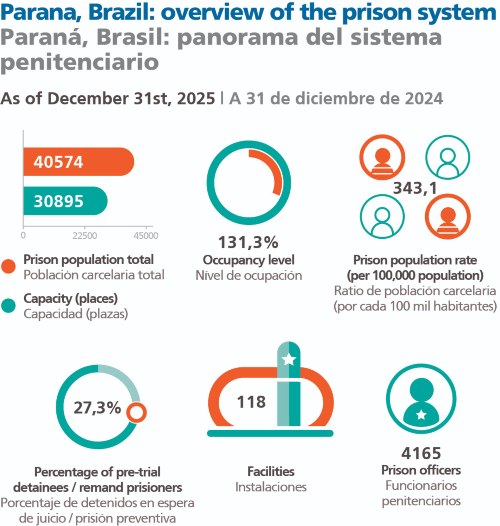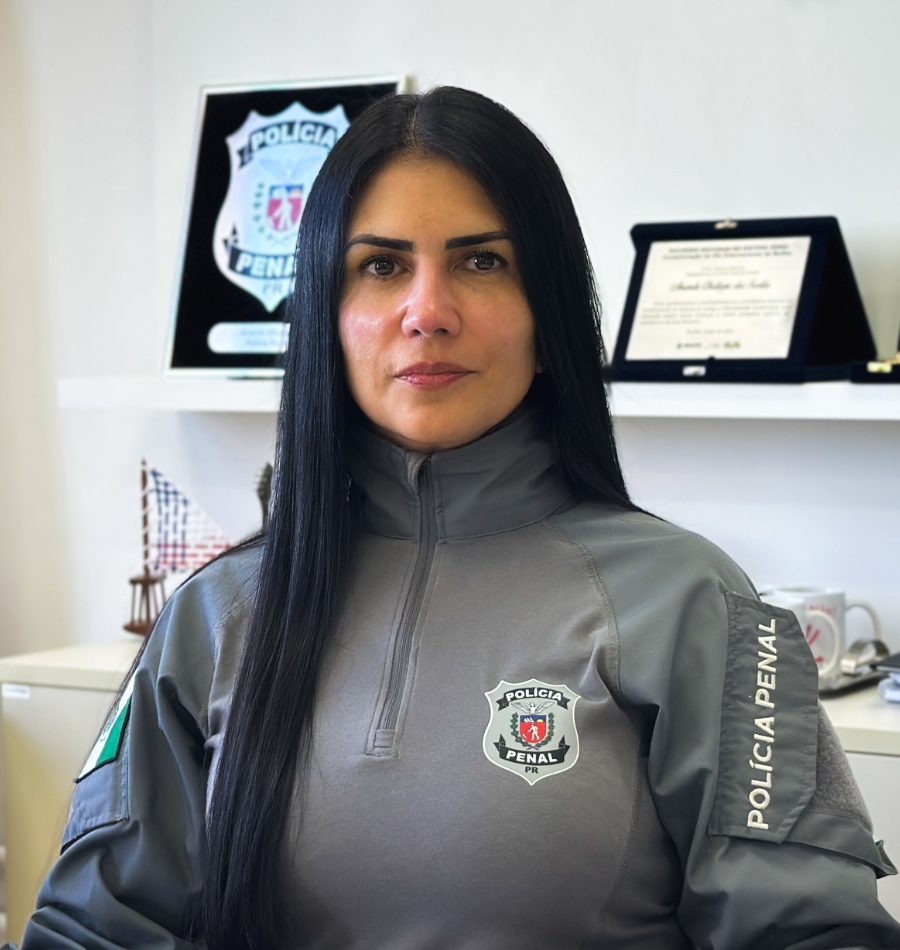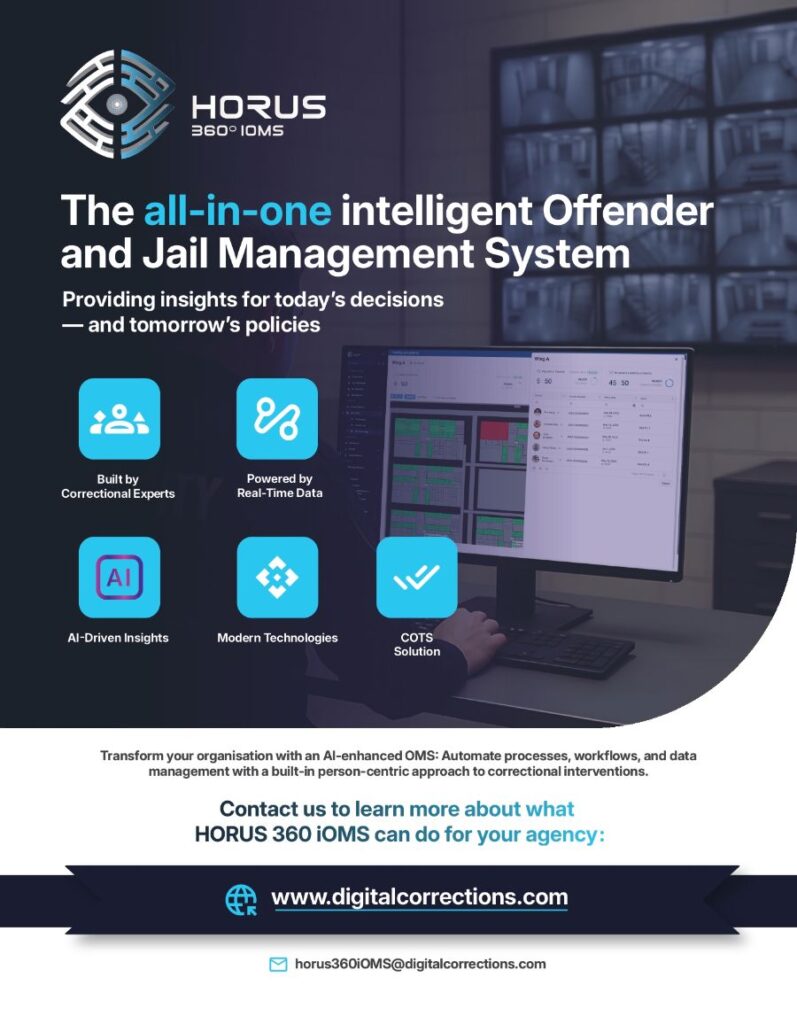Interview
Ananda Chalegre
Director-General, Paraná State Penal Police Department, Brazil
In 2021, the Government of Paraná transformed the State Penitentiary Department into the Penal Police Department, expanding the operational powers of the Penal Police, now formally tasked with managing the prison population – a role that had previously involved other public security forces, including the military and civil police. This reform reflects a broader shift across Brazil, recognising the Penal Police as an official branch of the country’s public security system, following a 2019 federal constitutional amendment.
Ananda Chalegre, who leads Paraná’s Penal Police Department, explains how the institution has been working to modernise prison management, strengthen social reintegration through work and education, expand the use of alternative sentences, and embed research and technology into everyday practice.
JT: In recent years, Paraná’s prison system has undergone a series of structural and administrative changes with the creation of the Paraná State Penal Police Department (PPPR).
What are currently the PPPR’s main responsibilities and priorities?
AC: Today, the main responsibilities of the Paraná Penal Police include the custody, surveillance, escort and penal rehabilitation of people deprived of their liberty in the state prison system. With the creation of the Penal Police, these duties are now carried out with institutional autonomy, which gives us greater capacity for management and modernisation.
Our key priorities include valuing our staff, improving the physical infrastructure of prison units, expanding the number of available places, strengthening prison intelligence, enhancing security procedures and, above all, promoting effective policies for the social reintegration of individuals through work and education.
JT: The creation of the Penal Police was a marked change in the prison management model.
How has this new structure enabled concrete advances in the approach to the social reintegration of persons in custody?
AC: The establishment of the Penal Police has brought a new perspective to the prison system. We stopped being just an operational sector and became the protagonists of prison management.
This progress has allowed for a more integrated approach between security and rehabilitation, through structured programmes focused on training, education, healthcare, and employment. Social reintegration is no longer just a legal obligation, but has become a core principle of how we work. We have established dedicated teams, specialised units, and long-term programmes to support this.
Throughout Paraná, 9,556 people deprived of their liberty currently enrolled in formal education, ranging from primary and secondary to higher education. Participation in work programmes is also growing, and today we have around 14,000 individuals involved in labour activities, both within and outside correctional facilities.

JT: Paraná’s penal treatment model, with its classification systems and Progression Units, has been recognised as a national benchmark.
What advances have these systems and structures brought to the
individualisation of sentencing and social reintegration?
AC: The penal treatment model adopted in Paraná, which is grounded in technical and individualised criteria, has allowed us to organise the system in a more rational and efficient way. The classification process helps us better understand each person’s profile and needs, which is essential for applying appropriate and targeted policies.
The Progression Units are a clear example of this approach in practice. In these units, individuals gradually take on more responsibility in exchange for access to rights such as work, education and leisure social activities. This encourages a positive cycle of co-responsibility and helps people prepare more effectively for life after custody. To give you an idea, the average recidivism rate in among those in Progression Units is around 4%, and in the women’s units it drops to under 2%.
Another important aspect of this model is that Progression Units do not admit individuals associated with criminal groups. which ends up discouraging them from joining organised crime inside prison. This reduces the incentive to join or maintain ties with organised crime while in custody, contributing to the weakening of this harmful influence and promoting an institutional culture based on discipline, merit and social reintegration.
The average recidivism rate in among those in Progression Units is around 4%, and in the women’s units it drops to under 2%.
JT: Labour participation remains one of the most widely used reintegration tools in Paraná, with a range of initiatives across different locations, target groups and professional areas.
What examples would you highlight among these labour fronts to achieve the state’s goals of professional qualification and reintegration into the labour market?
AC: We have built and consolidated partnerships with various local councils, public institutions and private companies, which allow around 14,000 people in custody to take part in meaningful work activities. One example I would highlight is our agreement with the Paranaense Institute for Educational Development (FUNDEPAR), through the Mãos Amigas (Friendly Hands) Programme, where over 120 individuals work on the restoration and conservation of public schools. We also have a partnership where people on electronic monitoring work on separating food that would otherwise be discarded and which is then given another destination, such as being sent to vulnerable families.
Another interesting project is Amigos da Cidade (Friends of the City), where more than 750 individuals work in local councils carrying out various maintenance activities.
In addition to partnerships with public bodies, we also collaborate with private companies. Inside the prison units, people are engaged in furniture making, sewing, producing concrete materials, and manufacturing fencing panels, among other tasks.
These work fronts reduce idleness, generate income, and build technical skills, ensuring that time in custody is used to prepare for reintegration into the workforce.

What other programmes or initiatives has the PPPR implemented to support the social rehabilitation of people serving alternative sentences to deprivation of liberty?
AC: The support and monitoring of individuals is managed by our Social Complexes, specialised PPPR structures that include both the Integrated Centres for Penal Alternatives (CIAPs) and the Support Centre for Monitored Individuals (NUPEM). These centres are responsible for monitoring these people, offering psychosocial support, legal guidance, and referrals for vocational training, education, and community services, along with personalised follow-up and monitoring.
This structure ensures that sentences are taken seriously while helping to reduce reoffending and promote meaningful accountability. Paraná’s approach to penal alternatives includes a wide range of rehabilitation and citizenship-focused actions, such as the use of Restorative Justice, guided reflection groups aimed at encouraging responsibility and behavioural change, educational activities, and innovative projects like the use of reading as a form of community service for those unable to carry out tasks in the field.
In addition, there are regular referrals for access to essential services in the areas of healthcare, education, safety, and legal assistance. With this articulated set of measures, the PPPR strengthens the effectiveness of alternative community measures by promoting social accountability with dignity, structured support, and a focus on reintegration.
JT: Scientific research has been gaining relevance in the Paraná Penal Police, with professionals actively participating in the evaluation of studies and the construction of technical criteria. The participation in specialised journals, such as RBEP, reinforces this link between academic knowledge and institutional practice.
How has this approach contributed to consolidating evidence-based prison management, both in the formulation of public policies and in the day-to-day application of rehabilitation practices?
AC: This closer connection between institutional practice and academic research has been fundamental. Professionals from within and outside the PPPR have contributed to produce knowledge, publish articles and develop evidence-based technical guidelines, such as the care protocols used in the Progression Units.
This helps to build a culture of qualified management, driven by data and continuous analysis of results. Public policy becomes more precise, and the impact of rehabilitation strategies can be assessed more rigorously, ultimately improving the effectiveness of the system as a whole.
Professionals from PPPR have contributed to produce knowledge, publish articles and develop evidence-based technical guidelines, such as the care protocols used in the Progression Units.

What role have digitalisation and the implementation of technological tools played in the strategy of the Penal Police?
AC: Digital transformation is a strategic pillar of prison management in Paraná, helping to make processes more efficient, secure and transparent. Technological tools such as prison information systems allow for better control and management of the prison population, as well as supporting data-based decision-making.
Electronic monitoring is an example of modernisation, which has expanded the possibilities of carrying out alternative sentences and measures safely, traceably and efficiently. We have also invested in distance learning as a way of widening access to education for people in custody across the state. One example is the Siris Project, an initiative that aims to offer basic and professional education through classes broadcast live to the cells.
As for the next steps, there is an ongoing commitment to expanding digitalisation, with plans that include integrating systems, using artificial intelligence to analyse data, expanding digital education, implementing advanced security technologies and automating administrative processes. The aim is to strengthen the work of the Penal Police and make the prison system increasingly efficient, humanised and aligned with best technological practices.
Ananda Chalegre
Director-General, Paraná State Penal Police Department, Brazil
Ananda Chalegre is the current Director-General of the Paraná Penal Police in Brazil. With a postgraduate degree in Intelligence and Public Security, Chalegre has been a criminal police officer for 18 years. She has served as director of different units, such as the State Central Penitentiary – Progression Unit, Curitiba House of Custody, Patronato and Social Office.
Advertisement



